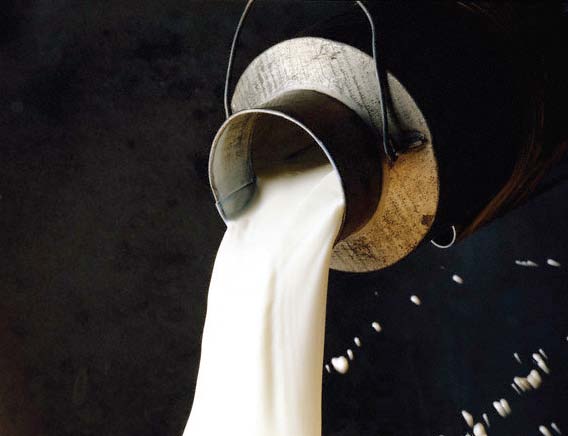
The business of selling adulterated and unhealthy milk is rampant in Battagram, spreading dangerous diseases among the populace. Despite public outcry, the local administration remains reluctant to take any action, and residents are demanding reform.
It has been discovered that suppliers from outside districts are mixing toxic chemicals into the milk distributed in both urban and rural areas. When the mobile milk testing lab visits Battagram, certain shops, particularly those affiliated with Punjab Dairy Farm, suspiciously close down minutes before their arrival. The remaining shops are fined for selling powdered milk mixtures, but the inspections seem more formalities than genuine enforcement. Public circles condemn the milk testing lab officials for their ineffectiveness and demand immediate government intervention to halt the sale of chemically adulterated milk.
Residents reported that the mobile milk testing lab team arrived in Battagram yesterday to check the milk sold in shops. However, just before their arrival, Punjab Dairy Farm milk shops closed, leading to accusations of collusion. Residents claim the mobile lab team is more interested in making money than taking action against the sale of toxic milk. Consequently, the unchecked sale of harmful milk continues to cause serious illnesses among citizens.
Dairy farms in Battagram are openly producing milk using dangerous chemicals. Authorities have yet to take action. In Khyber Pakhtunkhwa province, particularly in Hazara, hazardous chemicals such as melamine, caustic soda, urea, formalin, and "snow poison" are being used to adulterate milk, which is then sold as Punjab Dairy Farms milk. A study revealed that these chemicals are added to milk to preserve corpses, clean clothes and toilets, create foam, and maintain flavour.
This chemically laden milk, produced at around forty to fifty rupees per kilogram, is sold for one hundred and twenty to one hundred and thirty rupees per kilogram, driven purely by profit motives at the expense of public health.
The local administration has not yet acted against those selling adulterated milk nor investigated its purity. This milk, transferred between cities without refrigeration, does not spoil, indicating it is not genuine milk but a chemical mixture. Citizens report that consuming this unhealthy milk is causing stomach, lung, throat, and skin diseases, as well as various types of hepatitis.
Local health professionals are raising alarms about the long-term health effects of consuming such adulterated milk. They warn that continuous intake of these toxic substances can lead to chronic health conditions and a surge in medical costs for the community.
There is a growing call for stricter regulations, routine inspections, and harsher penalties for those involved in the production and sale of chemically adulterated milk to safeguard public health.


















COMMENTS
Comments are moderated and generally will be posted if they are on-topic and not abusive.
For more information, please see our Comments FAQ